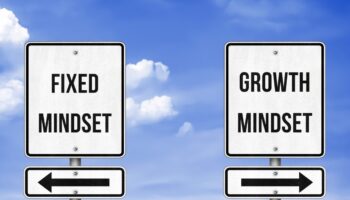Being Lonely and Being Alone: What’s the Difference?
The Nystrom & Associates provider consulted for this article is Sharon Melin, MA, Outpatient Therapist.
“Our language has wisely sensed these two sides of man's being alone. It has created the word “loneliness” to express the pain of being alone. And it has created the word “solitude” to express the glory of being alone," theologian Paul Tillich wrote in The Eternal Now.
Being lonely and being alone are two very different things. Why is it that some people can be perfectly happy being alone, and others may feel lonely even when they are with a group of friends?
What’s the Difference?
We sometimes associate “being alone” with “being lonely,” and it is important to realize that there is a difference between those two. Being “alone” is a physical state where you are physically by yourself. Being “lonely” is an emotional state where you are feeling alone or disconnected from others – even when they’re right next to you. Sometimes we are happy to be by ourselves, and sometimes we wish for the company of others. -Sharon Melin, MA, Outpatient Therapist.The key difference between being lonely and being alone is emotional attachment. Being alone is a state of being, while loneliness is a feeling. We can be perfectly happy being by ourselves, but we can also be lonely even if we’re with a group of people. Loneliness stems from feeling like our true self is not seen or understood either by others or from within. Solitude is craved by many people, while feared by others. Part of this has to do with our relationship with ourselves.
Your Relationship Within
If you consistently enjoy being alone, that’s a good sign that you have a healthy relationship with yourself. If you find yourself avoiding alone time at all costs, it may be a sign that you need to work on that relationship. Of course, there are times we feel lonely, and that can be totally normal. But if you're feeling lonely more often than not, don't be afraid to ask for help. When balanced, we enjoy our alone time as well as the company of others. We are in tune with when we need to separate ourselves for inner reflection, and when we need to get out and be around people. Our relationship with ourselves and others is at equilibrium; we have a sense of individuality but also recognize and support our need for a role as part of a larger group.What to Avoid
When you’re feeling lonely, it’s best to avoid:- Drinking alcohol by yourself
- Utilizing excess screen time (TV, phone, tablet) as a substitute for social activities
- Escaping your feelings through other substances like non-prescribed medications
Practices to Begin
Learning to accept ourselves as we are is a daily practice. There are habits we can implement to work on bettering our relationship within, like:- Recognizing your internal critic: Call yourself out when a negative voice takes over. Recognize the thought, then let it go. Replace it with a positive alternative.
- Practicing self-care: This includes the basics like taking care of your physical and mental needs, but it also includes fulfilling promises you make to yourself. Did you tell yourself that you'd do the dishes and pay that bill? Do it. Every time you fulfill a promise (no matter how small) you build more trust and confidence within.
- Acknowledging where you're at: Make peace with your past and come to terms with your current reality. Part of accepting ourselves is taking note of how/why we got to where we are and what we can do to change it.






